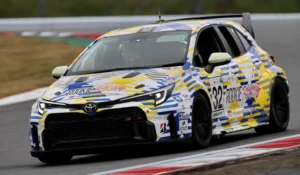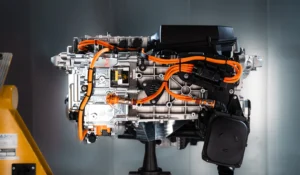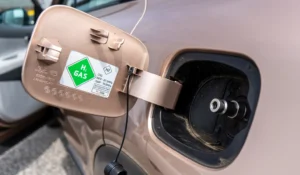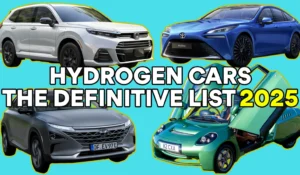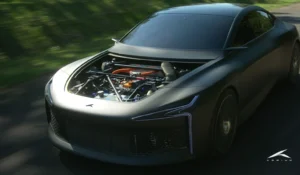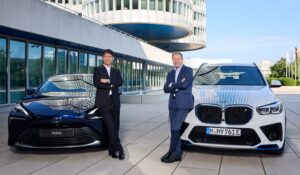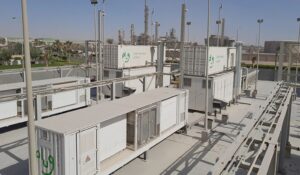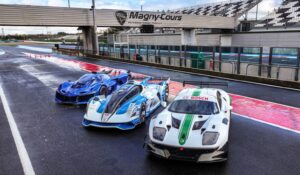British Touring Car’ CEO: Hydrogen is motorsport’s next big thing
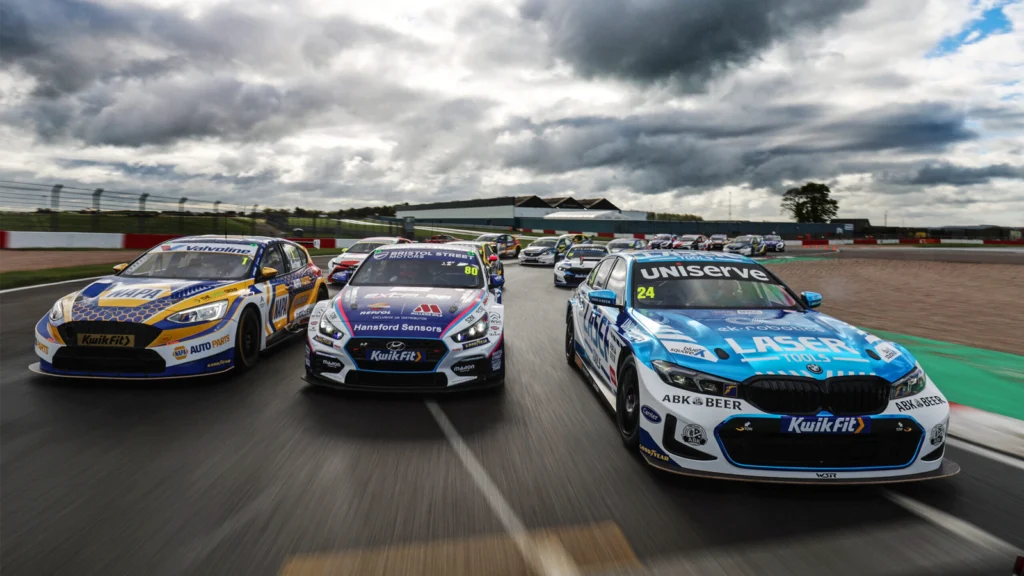
British Touring Car Championship BTTC)
The British Touring Car Championship (BTCC) has always been at the cutting edge of innovation.
In a recent interview hosted by Diagonal Comms, Alan Gow, the longstanding CEO of the British Touring Car Championship, and former boss of the UK motorsport industry body, shared his thoughts on the sports future and highlighted hydrogen as a key technology, explaining why it is better suited to racing than batteries.
The British Touring Car Championship (BTCC)
The BTCC has a long history of adapting to reflect real-world automotive trends. From pioneering the use of catalytic converters and unleaded fuel in the early ‘90s, to trialling alternative fuels like biofuels, LPG, and even diesel! The championship has consistently explored ways to stay relevant and close to real-world passenger car innovation.
“We’ve had biofuels. We have had LPG fuels. We’ve had all sorts of different fuels available during the course of the championship, and we’re probably the only one that has experimented with all of these things going forward and allowed those cars to race as a demonstration of what different fuels can do within motorsport,” Gow explained.
These steps, Gow said, have ensured the BTCC remains relevant while showcasing how new technologies can be integrated into racing.
Looking ahead, the Aussie boss sees hydrogen as a major next transformative step.
Hydrogen for motorsport and racing
Hydrogen offers significant advantages for motorsport, according to Gow. Its flexibility – whether as fuel for electric motors via fuel cells or for internal combustion engines directly – makes it well-suited to the demands of high-performance racing.
“Hydrogen is probably the next big thing, certainly for motorsport,” Gow remarked.
He predicted that hydrogen-powered cars could appear in the BTCC in the next couple of years.
“I think it’ll probably be in the next two to three years that we would have the hydrogen element within the championship. And it may be only a couple of cars running on hydrogen as part of the development exercise,”
Hydrogen systems also overcome many challenges associated with battery electric vehicles (EVs), such as weight and long recharge times, making them more suitable for the fast-paced, “short, sharp, exciting racing” that defines the BTCC.
EVs in motorsport
While battery electric vehicles (BEVs) have gained traction in consumer markets, Gow expressed skepticism about their value in motorsport.
“I think EVs have a very limited value within motorsport… There’s been very, very little take-up of EVs into motorsport for all the reasons we know about. You know, they don’t last very long. They’re very heavy and everything else.”
He noted that Extreme E is ending this year and is rebranding as Extreme H, transitioning to hydrogen power for the 2025 season.
Hydrogen’s reputation is growing due to its advantages in applications like motorsport, where performance and refuelling speed are critical.
New technologies in BTCC
The BTCC’s focus remains on delivering exciting racing. Gow stressed that any new technology must enhance the spectacle without driving up costs.
“Whatever we introduce, and whatever we use, has to have that as the overriding goal. And I’ll never introduce an element into it that takes away from that,” he explained.
This approach ensures the BTCC maintains its unique identity, with cars on the grid closely resembling those spectators drive.
Hydrogen, with its potential to integrate seamlessly into racing while meeting sustainability goals, and with a number of manufacturers currently developing hydrogen cars, fits naturally within this framework.
Will hydrogen be the future of motorsport?
Hydrogen is steadily gaining traction across motorsport, from Le Mans to the newly renamed Extreme H. Reflecting on how far the BTCC has come, Gow remarked:
“Who knew 10 or 15 years ago that we’d be talking about what we’re talking about now? If you said to me 15 years ago, look, you’ll be running hybrids, you’ll be running 100% sustainable fuel, and you’ll possibly be talking about hydrogen, I’d tell you to go and have a cup of tea and a good lie down.”
As motorsport evolves, hydrogen’s role is becoming clearer. For the BTCC, it represents an exciting opportunity to embrace sustainability without compromising the thrilling racing experience that has always been its hallmark.


